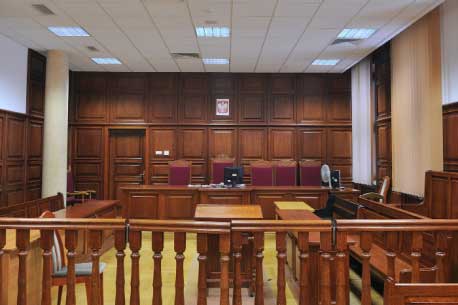An aggrieved person can also act as an auxiliary prosecutor. Then, if the indictment has been prepared by a public prosecuting authority (e.g. a prosecutor), the aggrieved person can appear before the court, joining the public prosecutor. A statement in this matter can be made until the commencement of the trial at the first-instance hearing.
Withdrawal of the indictment by the public prosecutor does not deprive the auxiliary prosecutor of his or her rights. Within 14 days from being notified of the indictment withdrawal by the public prosecutor, the aggrieved party who has not made use of his or her right to act as an auxiliary prosecutor before, can declare that he or she joins the proceedings as an auxiliary prosecutor.
However, if the auxiliary prosecutor drops the charge, he or she cannot join the proceedings again. The court can limit the number of auxiliary prosecutors acting in the case if it is necessary to secure the correct course of the proceedings. The court adjudicates that an auxiliary prosecutor cannot take part in the proceedings if the number of prosecutors specified by the court already participate.
It is also worth mentioning that an auxiliary prosecutor can take part in the case independently as a so-called subsidiary auxiliary prosecutor: it can occur when the public prosecutor discontinues the preparatory proceedings twice (the second time after the court orders the prosecutor to investigate the case again).
Then, the aggrieved party, acting as a subsidiary auxiliary prosecutor can bring to court his or her own so-called subsidiary indictment, irrespective of the fact that a given crime is generally prosecuted by public indictment. The indictment brought by the aggrieved party should be prepared and signed by the attorney.
[Legal status as at July 2015]
Public prosecutor:
In general, a public prosecutor is the public prosecuting authority before all courts. Primacy of the public prosecutor is also confirmed by Article 32 section 1 of the Act on the Prosecutor's Office: a prosecutor performs acts of the public prosecuting authority before all courts and can also perform these acts in matters brought to court by other prosecutors.
The public prosecutor is a party to the proceedings who does not represent own interests but acts in the name of the public interest. Furthermore, the public prosecutor is obliged to maintain objectivity. Due to the interest represented and the duty to be objective, the public prosecutor is the only active party who can bring means of appeal to the benefit of the defendant. In petty offence proceedings, the police fulfils the function of a public prosecutor.
[Legal status as at July 2015]
Aggrieved party in the criminal procedure
Main rights and obligations of the aggrieved part



